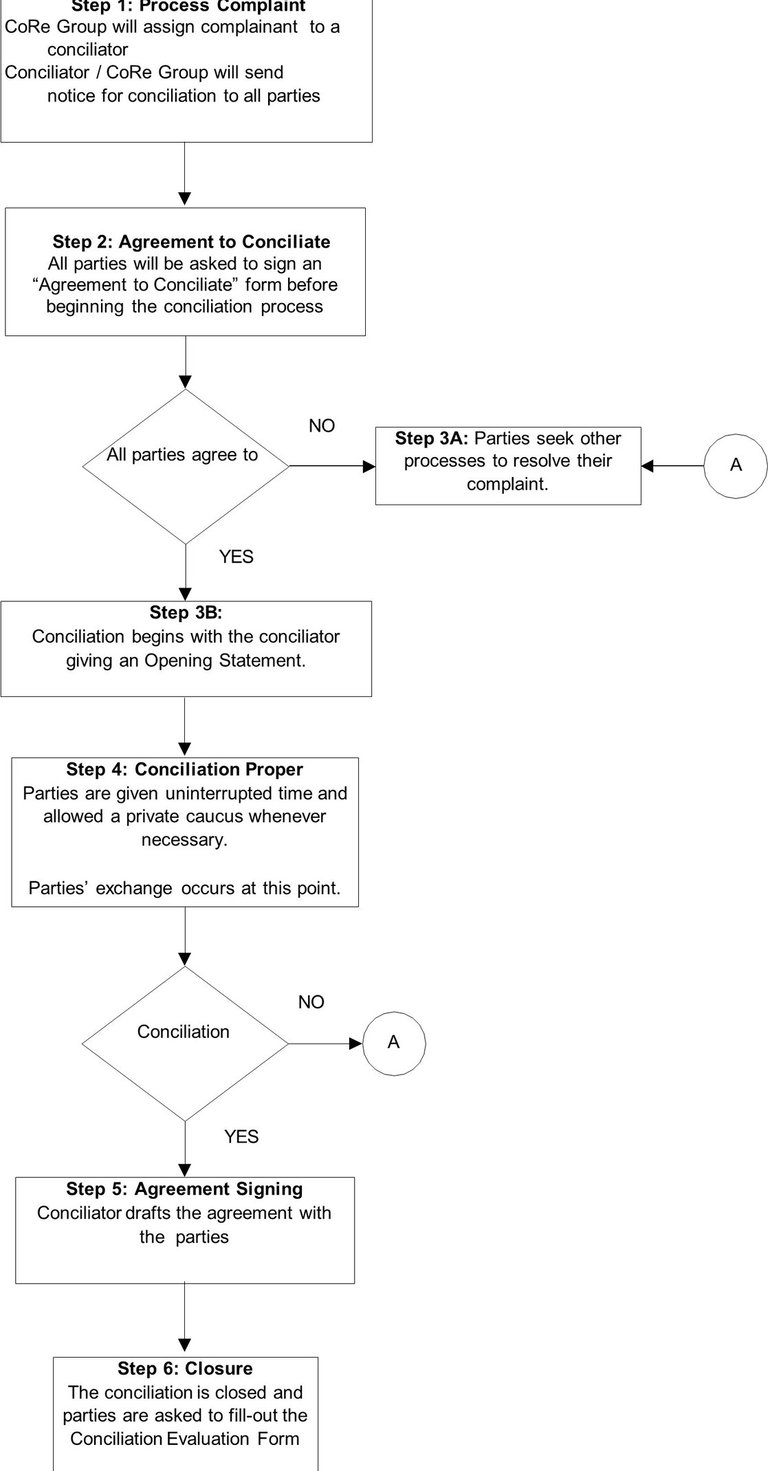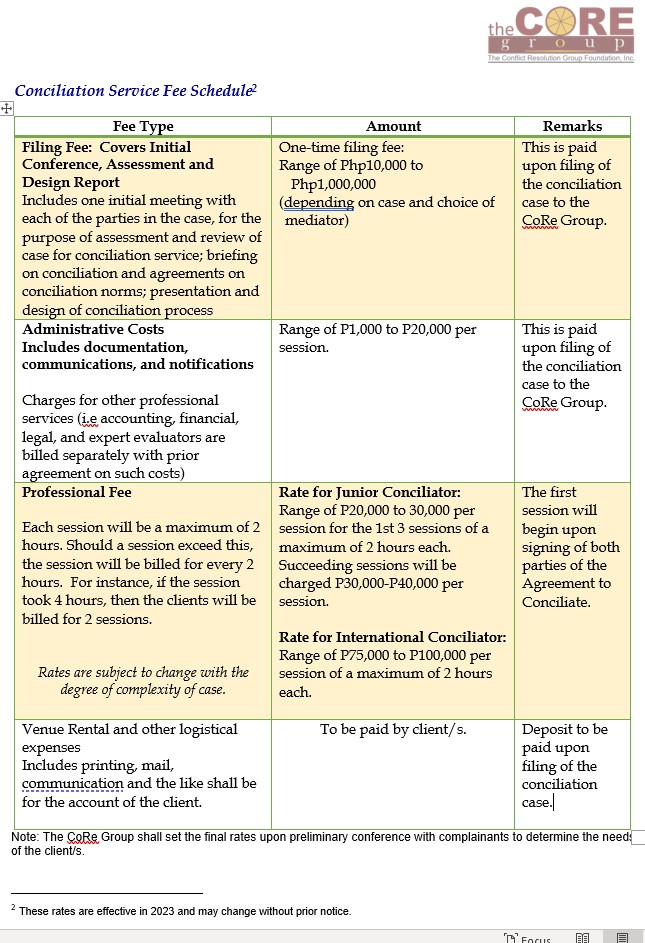Conciliation Procedures (at a glance)




Conciliation Fees:
Call us to know more about our services.
Description of our Conciliation Process
What is Conciliation?
The conciliation process is a method of resolving disputes or conflicts between parties through collaborative means. It is a voluntary and informal process that helps parties come to a mutually agreed-upon solution without going to court. In this process, a neutral third party, known as a conciliator, facilitates communication and assists the parties in reaching a resolution. The conciliator helps the parties identify their interests, explore possible solutions, and find common ground. They may also provide suggestions and advice, but the final decision is ultimately made by the parties involved. The conciliation process is often preferred as it allows for a more cooperative and collaborative approach to resolving conflicts, promoting understanding and preserving relationships.
What is the difference between Mediation and Conciliation?
Mediation and conciliation are two alternative dispute resolution (ADR) processes that aim to help parties in conflict reach a resolution. While they share similarities, there are distinct differences between the two approaches:
Role of the Third Party: In mediation, a neutral third party, known as the mediator, facilitates communication between the disputing parties. The mediator helps them identify issues, explore options, and work toward a mutually acceptable solution. The mediator does not impose a decision but instead supports the parties in reaching their own agreement. On the other hand, in conciliation, the third party, referred to as the conciliator, takes a more active role by providing suggestions and recommendations to the parties. The conciliator may propose solutions and encourage the parties to accept them, acting as a mediator with evaluative input.
Level of Control: In mediation, the control over the outcome and decision-making lie primarily with the disputing parties. The mediator facilitates the process, but the parties retain autonomy and make the final decisions themselves. The mediator focuses on fostering communication, exploring interests, and guiding negotiations. Conversely, in conciliation, the conciliator may have a more directive role and may exert more control over the process. The conciliator can suggest solutions and even propose settlement terms to the parties.
Formality and Legal Status: Mediation can be a more informal process, and its outcomes are generally non-binding unless the parties voluntarily agree otherwise. It allows for more flexibility, privacy, and confidentiality. Conversely, conciliation may have a more formal structure, especially in legal contexts. In some jurisdictions, conciliation may have legal status, and the agreed-upon settlement terms can be enforceable.
Approach to Resolution: Mediation typically focuses on facilitating dialogue, fostering understanding, and helping the parties explore their underlying interests and needs. The mediator's goal is to enable the parties to arrive at a mutually satisfactory solution. In conciliation, while dialogue and understanding are also important, the conciliator may take a more active approach by offering suggestions, proposing compromises, and helping the parties bridge their differences.
Both mediation and conciliation can be effective methods for resolving disputes, and the choice between them depends on the specific circumstances and preferences of the parties involved. Some jurisdictions may use the terms interchangeably or have variations in their definitions, so it is important to consider the local legal context when discussing mediation and conciliation.
Roster of Accredited Conciliators
Myra Angeli Gallardo-Batungbakal
Francisco Ramirez, Jr
Belen Nicasio
Margarita Reyes
Mia Theresa Quiaoit-Corpus
